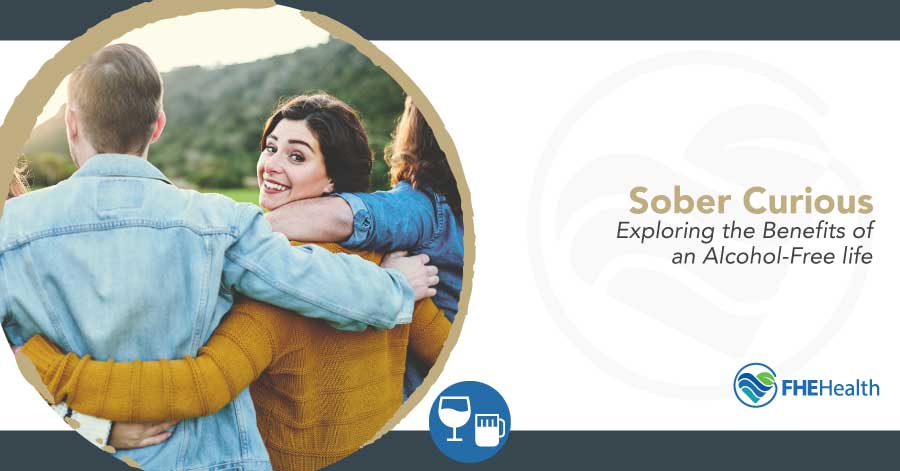
It’s another Friday night and the ritual of going to the bar to drink and hang out with friends or co-workers may not be as fun as it used to be. More and more Americans are foregoing their relationship with alcohol to join the “sober curious” movement and find out how sobriety became cool. Keep reading to discover why this is more than a fad and may be worthwhile to explore….
What is Sober Curious?
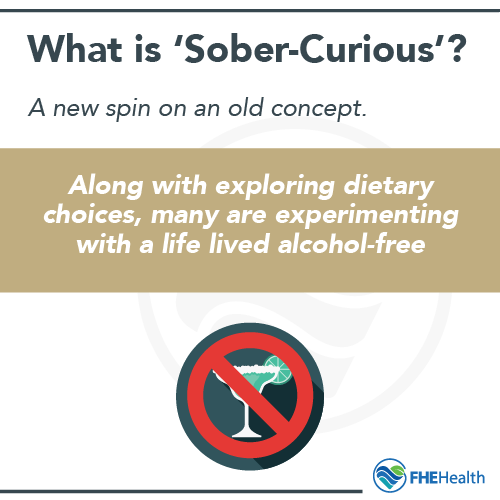 While the term “sober curious” may be novel, it is now a new trend. The sober curious movement likely grew out of people’s desire to make improvements in their overall health. Americans are increasingly aware of the dangers of alcohol consumption. These warnings have been highly publicized, backed by scientific research on the negative side effects of alcohol as well as how drinking affects sleep, leads to dehydration, and other problems.
While the term “sober curious” may be novel, it is now a new trend. The sober curious movement likely grew out of people’s desire to make improvements in their overall health. Americans are increasingly aware of the dangers of alcohol consumption. These warnings have been highly publicized, backed by scientific research on the negative side effects of alcohol as well as how drinking affects sleep, leads to dehydration, and other problems.
There’s ample evidence from the Centers for Disease Control and Prevention (CDC), for example, that shows when you drink alcohol, it increases the risk of a number of cancers, including cancers of the colon, esophagus, larynx, liver, mouth, and throat, and rectum. That’s mainly due to the DNA damage that occurs as a result of the body breaking alcohol down into the chemical acetaldehyde.
Still, what is the sober curious movement? How widespread is it? What’s involved if someone wants to take part? In other words, what is sober curious, what does it mean, and what are some of the benefits?
Its Use in Pop-Culture, How the Term is Catching on
Sober influencers have a lot to do with how the term is catching on. Social media, health articles on what is sober curious and ways to celebrate a dry January, as well as a discussion of how sobriety became cool, are everywhere in pop culture. On Instagram, #soberissexy is a popular hashtag. A YouGov poll released in January found that 14 percent of respondents said they planned to participate in a dry January 2020. Popular author, Ruby Warrington, has also written an informative book explaining the concepts of “sober curiosity” titled “Sober Curious: The Blissful Sleep, Greater Focus, Deep Connection, and Limitless Presence Awaiting Us All On The Other Side of Alcohol.”
Some of this has to do with New Year’s resolutions, especially after imbibing to excess during the Christmas holidays. With the new year comes a fresh start and good intentions to make small to significant lifestyle changes. The sober curious movement, however, seeks to extend positive lifestyle behaviors well beyond the first month of the year. In this, the individuals trying out sobriety during a dry January may find the benefits of this new sobriety so compelling that they work diligently to maintain their alcohol-free lifestyle.
An Old Concept Re-Named
Dry January started in 2012 as an initiative by a British charity, AlcoholChangeUK, to encourage people to lose weight, stop hangovers, and save money by not drinking for a solid 31 days. Not to minimize it, but there are other trendy lifestyles that have promoted an alcohol-free life. That’s all well and good, although to be clear, there is a difference between someone being “sober curious” and being sober. Sober generally refers to an alcoholic getting clean. Sober curious, on the other hand, refers to a lifestyle choice a person makes for health reasons.
Alcoholics who are serious about getting clean would be better off seeking help from a physician or a professional at an alcohol and drug rehab center. Since serious and potentially fatal alcohol withdrawal effects can occur without medically supervised alcohol detox, anyone suffering from alcoholism or a suspected (and perhaps as yet undiagnosed) alcohol use disorder (AUD), should never attempt to kick alcohol cold turkey.
However, for those who do not have a problem with alcohol, deciding to cut back on drinking and exploring what it’s like to be sober for a change, or to find new friends who prefer to be abstinent, is a healthy pursuit. Thus, whether the sober curious movement is an old concept renamed or a catchphrase for the new sobriety, it is indicative of a healthy trend in society.
The Benefits of Exploring a Sober Lifestyle
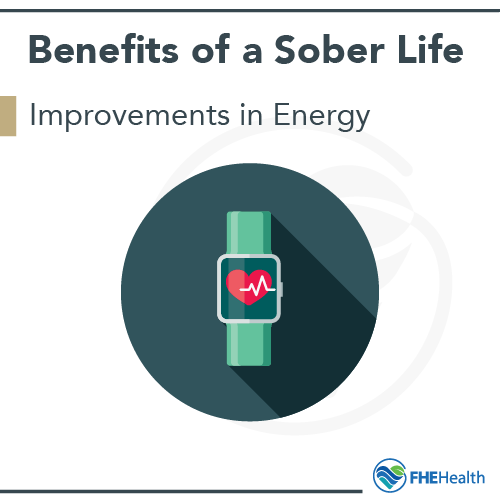 For those who have a history of binge drinking in college, or fondly remember tailgate parties where alcohol played a significant part in the sports experience, as well as those who regularly unwind with drinking, frequently meet friends at bars and drink more than they should, exploring a sober lifestyle may take some discipline. It is, however, increasingly popular, especially among sober influencers and their social media followers. Some of the benefits of exploring a sober lifestyle include:
For those who have a history of binge drinking in college, or fondly remember tailgate parties where alcohol played a significant part in the sports experience, as well as those who regularly unwind with drinking, frequently meet friends at bars and drink more than they should, exploring a sober lifestyle may take some discipline. It is, however, increasingly popular, especially among sober influencers and their social media followers. Some of the benefits of exploring a sober lifestyle include:
Improvements in Energy
Alcohol is a depressant that slows the breathing and heart rate of the body’s central nervous system. It also decreases energy, resulting in lethargy. One of the most immediately realized benefits of sobriety is a boost in energy. This is not only energy to begin an activity, but also the energy to keep going on the task or activity at hand.
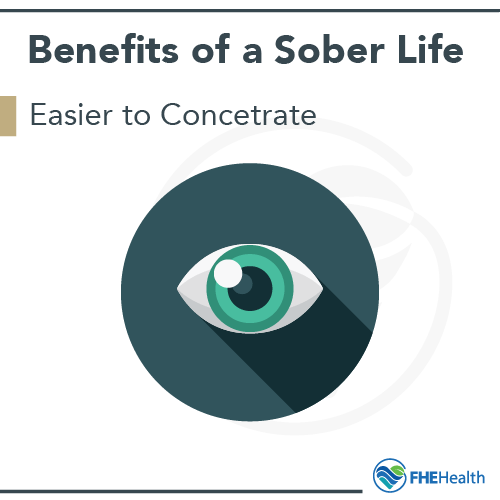 Easier to Concentrate, Better Mental Wellbeing
Easier to Concentrate, Better Mental Wellbeing
Whether it’s being able to enjoy a book and understand and appreciate what’s on the page, or having the focus to work on a project or assignment, being sober results in significantly improved concentration. A study reported in CMAJ (Canadian Medical Association Journal) found that lifetime alcohol abstainers achieve the highest levels of mental well-being, and women who quit alcohol improve their mental well-being. Researchers suggested that consciously quitting drinking may be associated with a higher or more favorable level of mental well-being, even approaching the levels attained by lifetime alcohol abstainers.
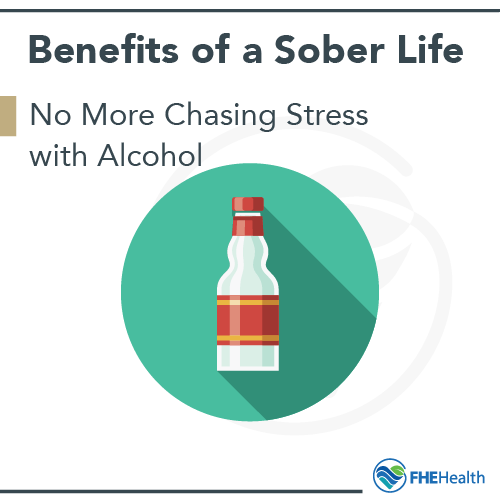 No More Chasing Stress with Alcohol
No More Chasing Stress with Alcohol
Instead of automatically reaching for a drink or looking forward to unwinding with several drinks or a bottle of wine, cutting out alcohol paves the way for healthier ways to reduce stress. After all, anyone who drinks too much to avoid thinking about problems knows that the problems will still be there the morning after. Sometimes, they’re even worse. With a clear head, though, the sober individual can better identify solutions to problems before they get out of hand, and find no need to chase stress with alcohol.
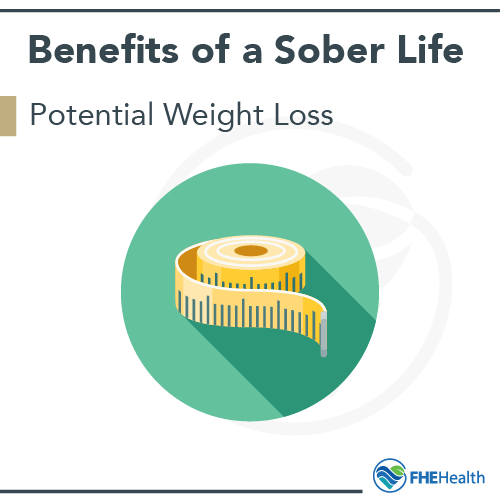 Potential Weight Loss
Potential Weight Loss
While losing weight may not be a primary goal of embracing a sober lifestyle, the fact is that alcoholic beverages do add calories, which translates to weight gain. Once that alcoholic intake is cut back or eliminated completely, the caloric intake that would otherwise happen is drastically reduced. Many individuals who decide to accept a sober lifestyle find that they also lose weight.
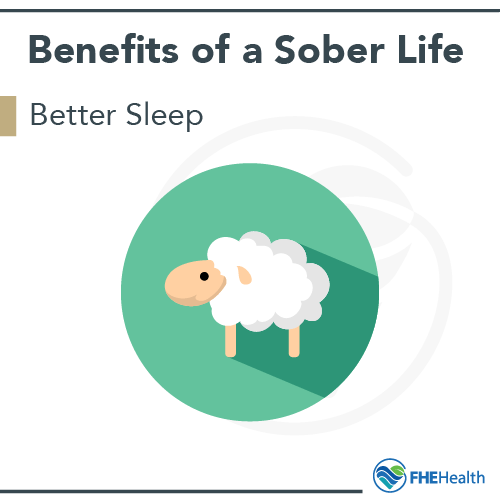 Better Sleep, Greater Focus
Better Sleep, Greater Focus
One of alcohol’s negative side effects is how it disrupts sleep. After cutting out alcoholic intake and being abstinent for a short time, however, sleep cycles become more normalized, resulting in better sleep, deeper sleep with fewer interruptions, and waking feeling well-rested, energized, and more focused. Furthermore, after about a month of not drinking, abstainers are less irritable and less prone to feeling anxious.
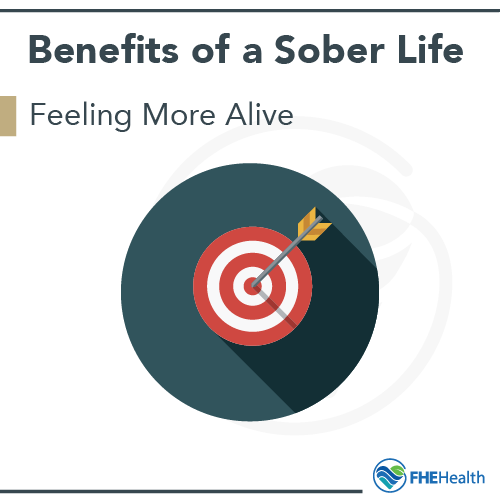 Feeling More Alive
Feeling More Alive
When not suffering from a hangover or senses dulled from being intoxicated, a person who decides to live a sober lifestyle sees life differently. Whereas surroundings may have been somewhat dulled before, due to the dampening effect that alcohol produces on the body and mind, the sober individual experiences senses that are true and sharp. Nature can be fully appreciated, with the plus of really enjoying a walk outside again. Playing with pets and being present is another benefit of going alcohol-free. In short, eliminating drinking and living sober jumpstarts a feeling of being more alive.
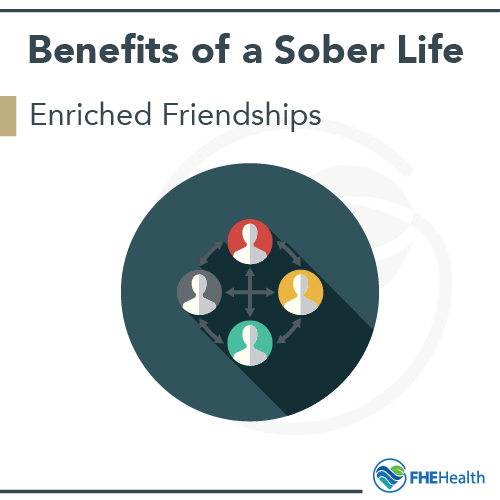 Enriched Friendships
Enriched Friendships
When not tanked or hungover, being able to spend quality time with friends is a valuable benefit that comes as a result of being sober. In fact, the sober lifestyle, once adopted, can broaden friendship possibilities, as it’s easier to engage in conversation with people and be fully present. As for existing friendships with people who appreciate a sober lifestyle, those personal interactions and bonds will likely be much enriched and deepened.
What are Your Next Steps if You are Sober-Curious?
Suppose the choice to embrace a dry January was a success. The potential benefits of adopting and adhering to a sober lifestyle may well outweigh falling back into a pattern of heavy social drinking, drinking to relieve stress or avoid thinking about problems, or downing alcohol out of boredom or because it’s something to do to kill time.
What’s next?
Cutting back on drinking is a good first step since discontinuing drinking all at once will likely boomerang. Gradual reduction in drinking is good when someone’s giving serious thought to what is the sober curious movement and adopting this new sobriety. Over a few weeks, it should be possible to stop drinking altogether— as long as there isn’t already an alcohol dependence or AUD that requires treatment.
It may be best to tell a close friend of the intent to eliminate alcohol for a month, for example, just to try it out. That way, social interaction is still underway, but without drinking. The friend should be supportive of the goal, so choose someone who can fill this role.
After becoming abstinent, changes can start happening relatively soon – within the first month of being abstinent. That should help with motivation and further strengthen the foundation in sobriety.
Consider joining a group that consists of non-drinkers or finding individuals who share some interests and live a lifestyle that doesn’t revolve around drinking. It’s easier to maintain a resolve to live sober when interaction with others is in an environment that’s alcohol-free.
Celebrate wellness by taking these small, positive steps for long-lasting physical and mental well-being by exploring the benefits of an alcohol-free life.






